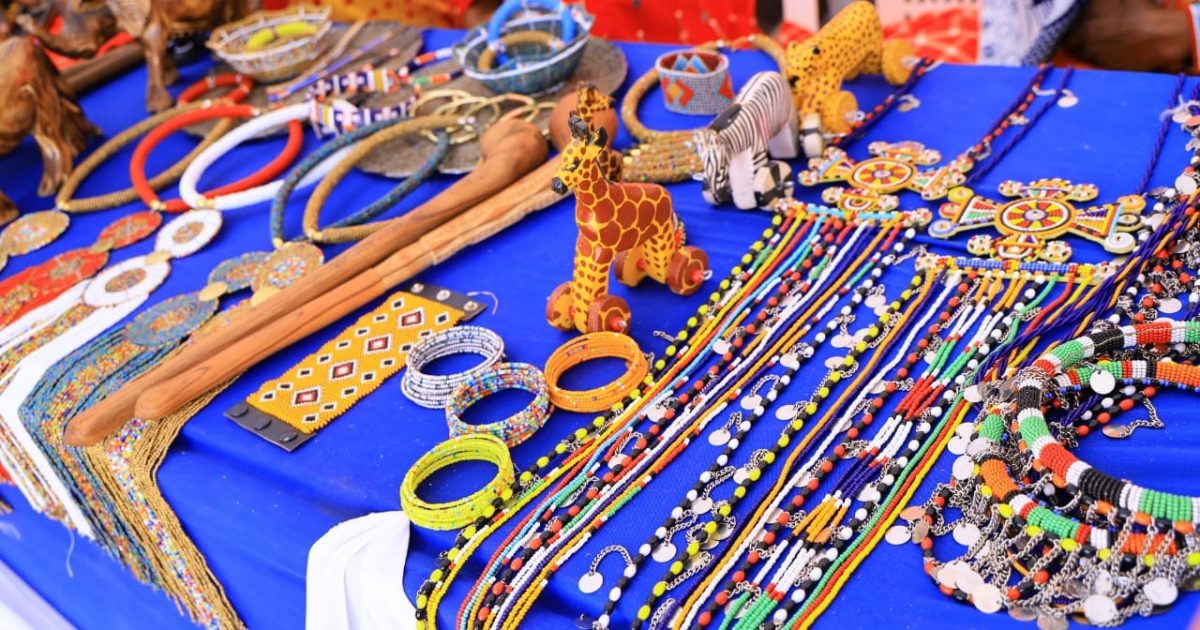Maasai bead traders have made a lifetime fortune during the ongoing Maa Cultural Festival at Sekenani Gate, Maasai Mara National Reserve.
The bead traders who spoke to KNA confessed to minting millions of shillings from the thousands of international and local tourists who have flocked to the national reserve to witness the wildebeest migration that has coincided with the cultural festival.
Ms. Agnes Nanina from Namanga, Kajiado County, said a Maasai rungu that cost Sh. 2, 000 is being sold at Sh. 4, 000 in the festival due to the high demand.
She said a bracelet that cost Sh. 500 is now selling for Sh. 1000, while a female Maasai belt that cost Sh. 2,500 is retailing for Sh. 5, 000 at the festival.
“The products are really in high demand. Many people who have come to witness the cultural festival and wildebeest migration want to identify themselves with the Maa people,” she said.
Nanina lauded the festival, saying the bead workers were the biggest beneficiaries of the festival as all the people attending the festival were eager to have a touch of Maa culture. Beadwork had been dominated by other communities, but the festival has brought it back to its original owners, the Maasai women. We feel proud of our culture, and we will not let other people take advantage of our products again,” she said.
Another bead trader, Alice Nanana, from Kajiado County, said the ongoing festival has uplifted the livelihood of the Maa women, who initially depended on beadwork for livelihood.
While saying that beadwork is the backbone of the economy of the Maa people, Nanana called on the county government to protect the women from exploitation by other communities who take advantage of their illiteracy to sell the beads internationally.
Her sentiments were echoed by Ms. Jane Naisho, who said bead making was a way of life for Maa women and the culture should be protected for posterity.
“When we see our governors reviving our culture, we feel so refreshed because we know it will be passed on to our children,” she said.
Mr. Sonko Ole Nkoyo, who deals with Maasai shoes locally known as Kinyara, spears, swords, and herbal medicine, confessed that this is the season for the Maa people to reap huge profits from their culture.
He revealed that a Maasai sword that sells for Sh. 2,500 is going for Sh. 3,200 at the festival, while the price of a Maasai knife shot from Sh. 500 to Sh. 1, 000 and that of some herbal medicine from Sh. 50 to Sh. 100.
The South Rift Region Chamber of Commerce chairman, David Mpatiany, recalled how the bead traders suffered huge losses during the COVID-19 era, saying this is a season to recover what they had lost.
He lauded the organisers of the Maa Cultural Festival, saying it has united the Maa-speaking counties, who have so much in common to share.
By Ann Salaton




